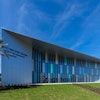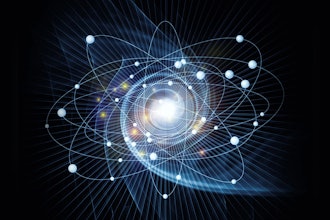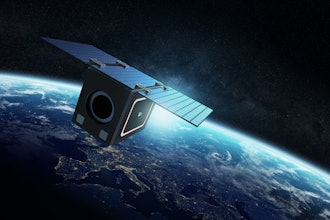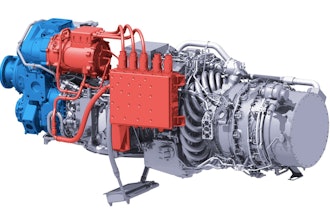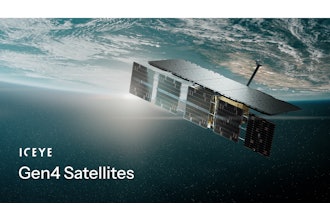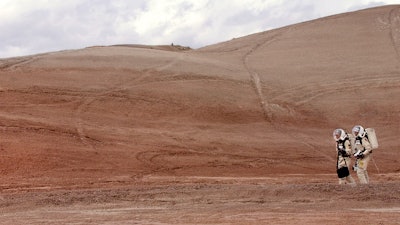
PROVO, Utah (AP) — Researchers at Brigham Young University are helping with a NASA-sponsored project measuring the electrical charge and size of dust particles on Mars.
The BYU group is nearing completion of the three-year project that hopes to understand the climate of the Red Planet and the impact the dust has on materials sent to its surface, the Deseret News reports.
The project began two years ago after NASA asked universities across the country for a Mars dust analyzer proposal, according to Shiuh-hua Wood Chiang, one of the BYU professors and researchers heading the project.
"Mars rovers, when they land on Mars, rely on solar power and solar panels to generate electricity. Dust tends to stick on these solar panels and reduce the power generation capabilities," he said, explaining that the dust's electrical charge causes it to stick to the panels.
Researchers need to understand how the dust particles may affect future instruments and life support systems on Mars, he said.
He noted that "in the future, we will be sending humans to Mars and the manned missions will require life support systems that interact with the Martian atmosphere, we need to understand how the dust particles may affect these instruments and life support systems."
In order to accomplish this, the BYU team has been producing lab-made Mars dust. These electronically charged dust particles are not visible to the human eye.
Printed circuit boards and low-noise charge and mass detection instruments are used to measure the charge and size of the particles.
Heading the research project with Chiang are BYU professors Daniel Austin and Aaron Hawkins, as well as a team of graduate and undergraduate student researchers.
"It is one of my dreams one day to work for NASA. And I feel that being in this lab, and working on this specific project is helping me get to that point, if I play my cards right," Elaura Gustafson, a BYU doctoral student in analytical chemistry, said.
NASA provided the team with a $640,000 three-year grant which, Chiang said, will end in summer 2020.
BYU isn't the only university in the West conducting research into Mars for possible human exploration.
The University of New Mexico and Los Alamos National Laboratory are partnering on a research project studying interactions of boron and ribose in groundwater on Mars. Ribose is a sugar and a key ingredient of RNA, the nucleic acid present in all modern life, related to the more complex DNA.



